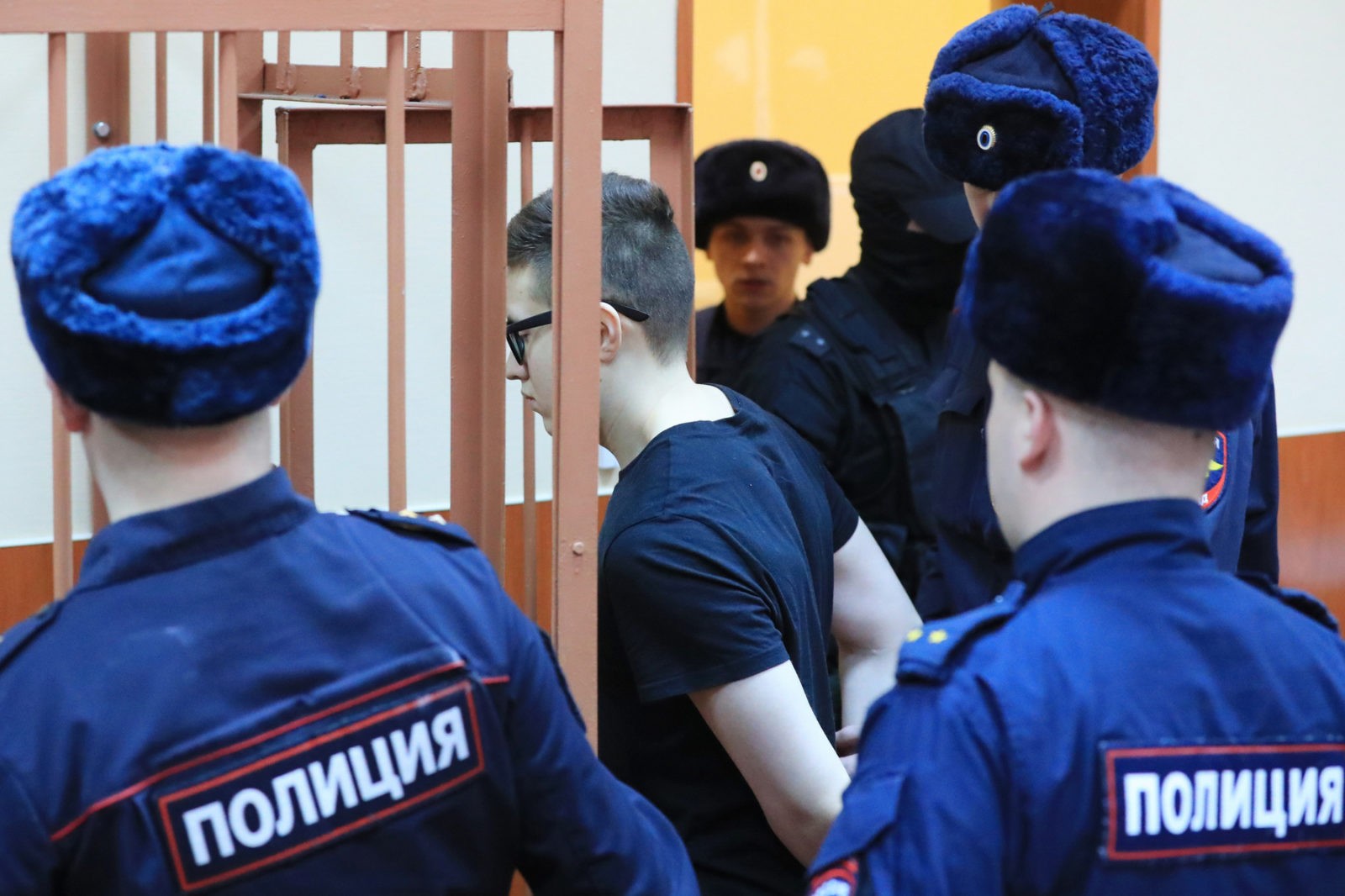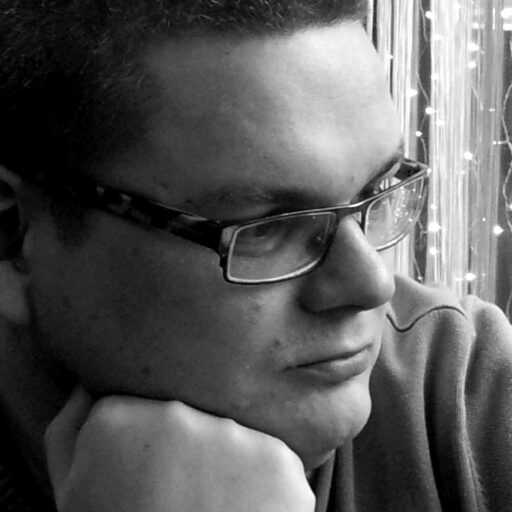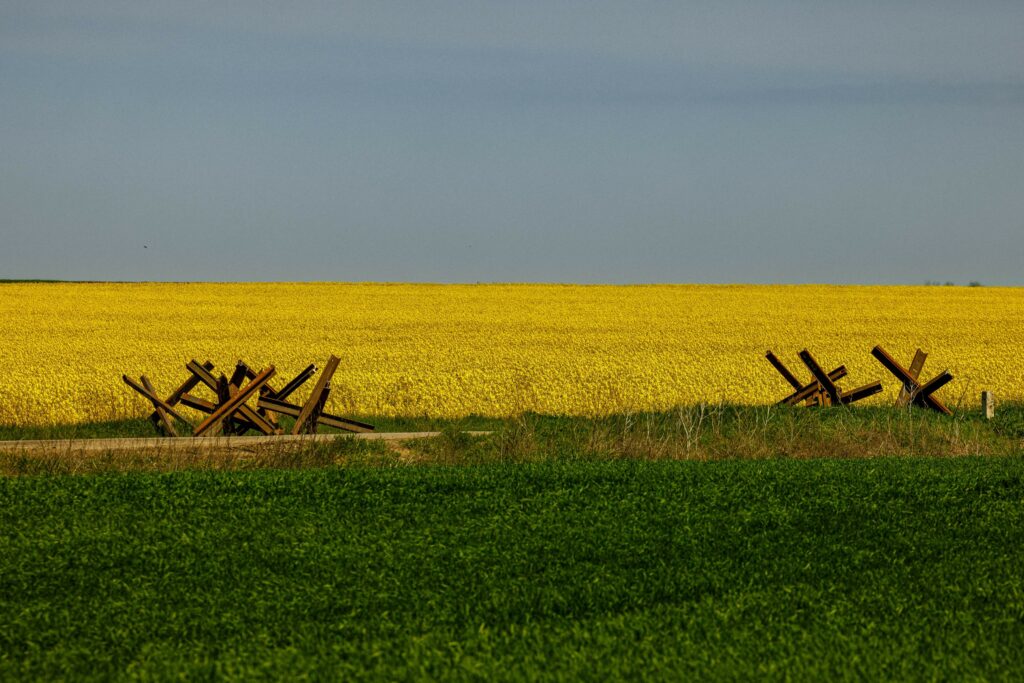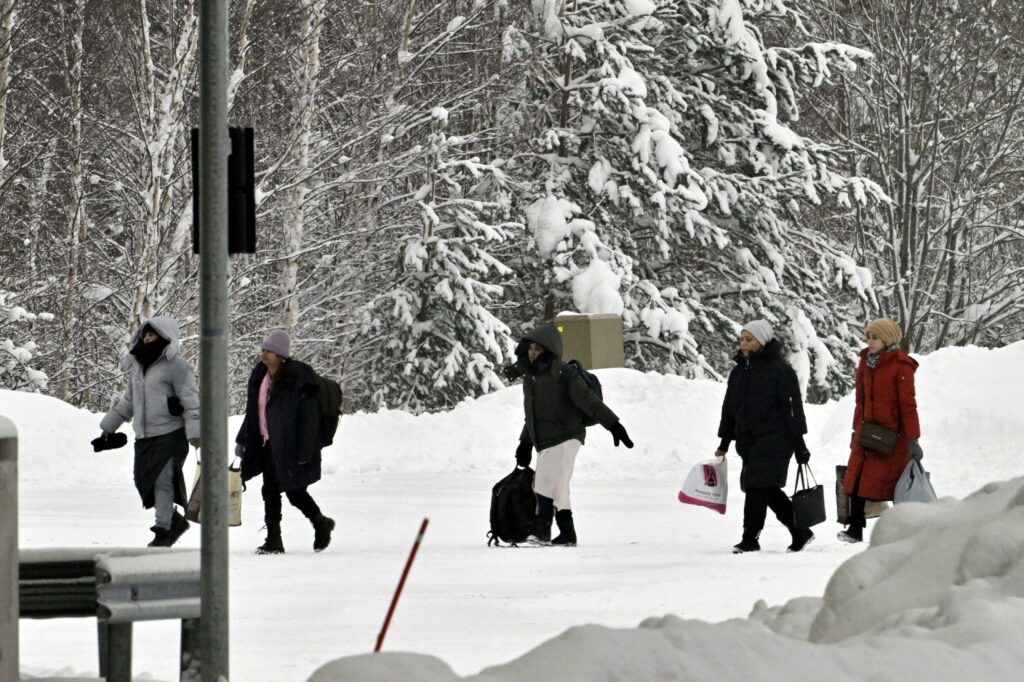At the end of February, Russia’s state media network TASS broadcast an online series entitled “20 Questions for Vladimir Putin.” The number refers to the president’s 20 years in power. Other media outlets marked the anniversary earlier, as Putin became acting president immediately after Boris Yeltsin’s resignation on December 31, 1999 — but the sticklers for detail at TASS counted from Vladimir Vladimirovich’s first electoral victory in March 2000. The series revolved around a conversation between Andrey Vandenko, head of TASS’s “First Person” project, and the Russian President, which was divided into 20 short episodes. The shows were entertaining in form: Putin was on unfamiliar territory here, trying to address the youth in their own language, even (very strangely) presenting himself as a fashion videoblogger. They were also entertaining in content: it turned out that besides stale jokes and tediously repeated truisms, Putin has no original ideas left to share.
But most noteworthy was a short exchange from the fourth episode, in which Putin mentions prominent criminal cases against participants in political protests. That snippet deserves our close attention.
“Do you know what was the most resonant case of 2019?” asks Vandenko. “No,” answers Putin. “Ivan Golunov,” Vandenko reminds him. Putin starts to recall the arrest of the prominent journalist, and in the discussion which follows, the two men come to the conclusion that, as Putin puts it, “in today’s Russia, the people’s intervention in politics matters.”
When translated from presidentialese to ordinary speech, those words mean that the authorities can no longer blithely ignore clearly unjust sentences and the arbitrariness of law enforcement. They mean that “we,” the authorities, have to reckon with protests, and even have to gingerly praise civil society for its achievements. “We” have to make concessions: when the punitive apparatus of the state has been unable to chew them up and swallow them whole, it may even have to spit out a victim or two.
Yes, of course there are caveats. As a rule, all these achievements mean is that an innocent person receives a suspended sentence rather than a real one. Or that the method of imprisonment is changed from a pre-trial detention centre to hose arrest. But even that is no small achievement. Until last autumn, such victories did occur — but very rarely. What changed?
Let’s try and understand why, since autumn 2019, the list of “victories of civil society” has started to grow. It is a bittersweet phrase, often written with the caustic irony towards one’s own modest achievements so popular on Russian social networks. But it is a fitting one. After all, even in a softball interview where all the topics were probably agreed in advance, the president was forced to publicly recall who Ivan Golunov is. Why, then, has the Russian state become more likely to succumb to public pressure?
The temporal factor
I would suggest that all this stems from a mistake which the authorities themselves made. The most resonant cases of previous years, in which it was not difficult to sense a strong political subtext, tended to drag on for years. Maintaining strong public interest in such issues for an extended period of time is not easy. As such, the general public could only be mobilised briefly, and only during the most vivid episodes — say, the next court session, or if a prosecutor or judge made any particularly appalling statements. Therefore, protests quickly subsided; only the defendants’ friends, family, and journalists specialising in court cases kept up their interest in such issues. On occasion, members of the same profession would stand in solidarity with the accused. But in general, politicised cases developed slowly, most of the time remaining on the periphery of the popular agenda.
So it was, for example, in the Seventh Studio court case, whose most prominent defendant was the world famous director Kirill Serebrennikov. So it was in the Novoye Velichiye case, in which a group of young people, after a provocation by the police, were accused of founding a criminal organisation which plotted to overthrow the Russian government (the defendants have yet to be sentenced in this case.) So it was in the Network case, in which young anarchists from Penza and St Petersburg gave confessions which led to their prosecution for terrorism. The “Network” organisation was subsequently banned as a terrorist group. The defendants now claim that FSB officers extracted their testimonies and confessions through torture. So many inconsistencies have been noted in the case that many observers believe it is entirely fabricated, and that there is no “Network” movement whatsoever. Nevertheless, the accused men in Penza have already received unimaginably harsh sentences — the longest is 18 years’ imprisonment in a penal colony. The accused men in St Petersburg are still being tried, and the verdicts will soon be announced. We will revisit the “Network” case in due course, but let us first return to the events in Moscow during the summer and autumn of 2019.
Local elections to the Moscow City Duma began that summer. The campaign was a major upset for the Moscow mayoralty, given the extremely crude manipulations used to block the participation of independent opposition candidates. Public anger led to mass protests, which then turned these dull local elections into a nationwide political sensation. Police brutally cracked down on the demonstrators and even random passerby who had done nothing more than the hundreds and thousands of other protesters had done. Mass protests, of course, were followed by criminal cases en masse.
Moscow autumn
The authorities’ response to the Moscow protests led to their greatest mistake, which allowed Russian society to more effectively resist repression from above. The “Moscow case” differed from other politically motivated trials in the extraordinary swiftness and thoroughness of the prosecutions. All this was concentrated in the shortest possible timeframe. Thirty two people were caught in the authorities’ machinations; the investigation of their presumed crimes was done at breakneck speed, and the courts decided their fates in a couple of days. The testimonies of National Guardsmen against the accused protesters were shameful and absurd: the guardsmen told the courts how frightened they had been by a paper cup hurtling towards them or the noise of an empty plastic bottle falling onto tarmac. The clear injustice of the court rulings could be clearly seen, and was attested to by the presence among the accused of random passersby who had not even participated in the protests. One of these was actor Pavel Ustinov, who was successfully fought off the charges: his initial sentence of three and a half years’ imprisonment was reduced to a year of probation.
Deeply annoyed by the summer’s demonstrations for fair elections, the initiators of the “Moscow case” were clearly counting on terrorising society into submission. They planned to simply intimidate the most politically active and hold a wave of protest at bay. But their actions had exactly the opposite effect: thanks to their efforts, the “Moscow case” garnered huge public attention. Accordingly, the protests against the trials were concentrated and determined.
That summer made a stark impression. Independent candidates were too brazenly and too obviously barred from running in the elections. Protests had been suppressed with unjustifiable brutality. In memorable scenes for every Muscovite, the centre of the capital was literally occupied by thousands of National Guardsmen and police officers. The internet heaved with video recordings attesting to the fury with which “law enforcement” beat peaceful passersby. At that moment, the entire country started to sympathise with Moscow — a rare occurrence given that the rest of the country does not particularly care for residents of the capital.
Most importantly, the protesters also had a taste of victory, and evidence that they could take on the state and save the innocent from its wrath. Putin himself remembered the case of Ivan Golunov, though not without difficulty. Policemen had planted drugs on the journalist; they then detained him and opened an investigation. In a sense, Golunov was lucky: law enforcement acted clumsily and carelessly, and the journalist’s detention coincided with the St Petersburg Economic Forum. The Russian president had expected to talk about investments, but was now compelled to talk about the arbitrariness of the police force. Journalists came out in support of Golunov and demonstrated a high degree of professional solidarity. The media outcry evolved into an outpouring of protest, in which media workers also played a role. As a result, Golunov was released. In fact, a case has already been brought against those who planted drugs on him in the first place.
To those who protested against the unjust sentences in the “Moscow case,” the reasons for Golunov’s acquittal were not important. The most important thing was victory. Victory is possible; the state can retreat.
The Network Case
The Moscow case dragged on and the wave of protests it had sparked began to subside. Yet the memory of “victories of civil society” did not, and neither did the precedent that pressure on the authorities can lighten the fates of the unjustly accused. That became even clearer, to both the authorities and protesters, after the very first sentences in the Network case.
The aforementioned discrepancies in the prosecution’s case, the huge jail terms, and reports of torture which nobody bothered (and are not bothering) to investigate all led to an explosion of public indignation. On Valentine’s day, February 14, hundreds of people came out to protest before the FSB headquarters on Moscow’s Lubyanka Square. Those who came stood and queued for a long time for their turn to hold a poster for a few minutes demanding that the case be reviewed. On February 17, 20 independent bookstores in ten cities across the country closed to protest the arbitrary behaviour of the security services. It is simply not possible here to list all the professional groups whose representatives expressed concern and anger in open letters, demanding a review of the case. Ordinary people far removed from any interest in politics spoke about how “those lads were tortured.”
More recently, a scandal erupted after the popular online news outlet Meduza published an article about the case which it called, dubiously, an “investigation.” According to Meduza, some of the defendants in the Network case are involved in drug trafficking and even murder. Its most trenchant critics accused Meduza of working for the FSB — an allegation which I believe to be completely baseless. The editors had to explain themselves. The somewhat understandable, though haughtily phrased explanation published by Meduza’s editors implied that the journalists rushed to publish unverified facts in fear that “the information could go public,” meaning that somebody else could have written about it.
There is an important point here: even though the opinions voiced during the discussions over the “investigation” were wildly different, they had one thing in common. Namely, even if the allegations turn out to be true, the attitude towards the Network case should not change. Torture is unacceptable. To fabricate criminal cases for political ends is a crime. People should be held accountable only for crimes they have committed, not those which investigators conjure up in the hope of career advancement. Russian civil society is not immature, and cannot be so easily deluded.
Technologies of power
But of course, the Russian authorities do not like to make concessions. At the moment they are testing out various approaches to interacting with protesters. Shortly before the publication of Meduza’s “investigation,” the trial of Andrey Barshai, one of the last defendants in the Moscow case, took place in the Russian capital. The judge, Tatyana Izotova, behaved so defiantly that it seemed as though a full prison sentence could not be avoided. Which was precisely why the eventual sentence was so surprising: Barshai was handed three years of probation. Nevertheless, no mass protests in support of Barshai were held — Russian protests can still be fleeting things.
What explains this sudden humanism? It seems that the reason is precisely the level of public indignation at the harsh verdicts in the Network case. In a sense, it was a good deal for the state: we won’t lock away this student, and you stop making a fuss about the Penza anarchists.
Meduza’s article has since become a real treat for state propaganda outlets. Practically all blogs and Telegram channels sponsored by the presidential administration have seized on it. It was approvingly quoted by Dmitry Kiselev, host of the Vesti Nedeli programme and one of the most prominent faces of Russian state television. The line was clear and predictable: take a look at this, well-behaved citizens, opposition protesters don’t just support terrorists, but even commonplace murderers who trade in drugs. And to top it off, they allegedly poison their own colleagues who dare speak openly about it. Nothing quite like this has ever happened before: in order to hold back a wave of protest and whitewash a dubious investigation, state propaganda has even resorted to using the materials of “enemy” publications. And most of all, it is ready to exploit any and every division it can see in the opposition camp.
A rickety regime
Both positive and negative conclusions can be drawn from these events. On the positive side, the authorities are clearly aware that politically motivated criminal cases are problematic. It is impossible to fully avoid them, given that they play an important method of intimidation and therefore in making certain signals to society. Some of these cases, however, are accidental: the Network case clearly arose from the desire of security officials in the regions to curry favour with the centre, which in this case needed nothing of the sort. But this very awareness further weakens the authorities’ position of power, as they are now forced to bargain or even retreat in particularly egregious cases.
Yet the Russian authorities are still able to ascribe society’s victories to themselves, if all else fails. Another noteworthy point during Putin’s dialogue comes when Vandenko reminds him of another person caught up in the Moscow case, Konstantin Kotov. Kotov had been unjustly convicted, but there is a chance that the verdict against him may be changed. “His case is being reviewed, as the constitutional court ordered. After appeals were made to you, and you personally took this issue into your own hands, the process began right after a press conference. That is to say, it turns out that in any case, the president’s personal involvement, the ‘manual control,’ so to speak, still matters,” said Vandenko. Thank you, dear president, for saving political prisoners from the dear president’s subordinates!
Mass pressure on the authorities does have a chance of succeeding. Often the reason for the conditional (in various senses of the word) victories won by civil society is thanks to the collective action of professional circles. For example, actors initially stood up for Ustinov, journalists for Golunov, and students and university professors for Yegor Zhukov, another person involved in the Moscow case who received a suspended sentence.
Without starting a debate about the relative degree of influence of actors and students, I simply note that in all the aforementioned (and several unmentioned) cases, success came only when the protest moved beyond the confines of the professional sphere. Indeed, a close-knit professional community can be a catalyst for protests, but the wider the scope of the protest, the greater the accused’s cause to hope for freedom.
Power is not a tank. It is not a monolith or a concrete wall. If you push on it, it might just succumb to pressure. But if you don’t ever press, then those involved in politics in ways the state finds unpalatable will be imprisoned. And it seems that, today, there are enough people in the country who understand that supporting victims of unjust politicised criminal cases is not only an abstract matter of legal rights, but a very concrete issue of public self-defence.
However, on the pessimistic side, the sad conclusion has to be as follows: all the above only works in the capital and the largest cities. The Network case, for example, did not receive much attention until defendants from St Petersburg featured in it. In Yekaterinburg, a place of a million people which is hardly in the back of beyond, a criminal case is slowly mounting against protesters who came out against the construction of a church in one of the city’s central squares. That protest, which began in spring 2019, galvanised civil society and also became an event of federal importance. Nevertheless, the problems which Yekaterinburg’s protesters have started to face no longer attract as much attention.
In short, Russia remains a supercentralised country. Moscow and St Petersburg, its two metropolises, easily become isolated from realities elsewhere, and rarely exhibit any interest in what goes on in the regions. But as the Moscow case goes to show, the regions are ready and willing to support the metropolises. Russia’s regions may be blighted by problems of their own, but they also seem blessed by more political maturity.










